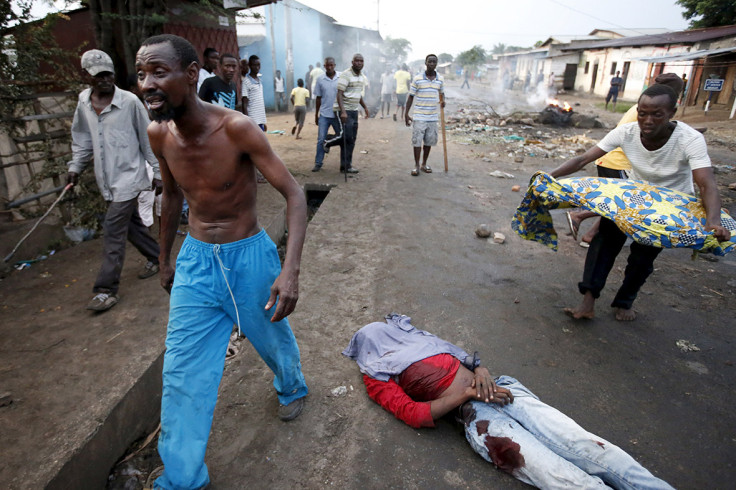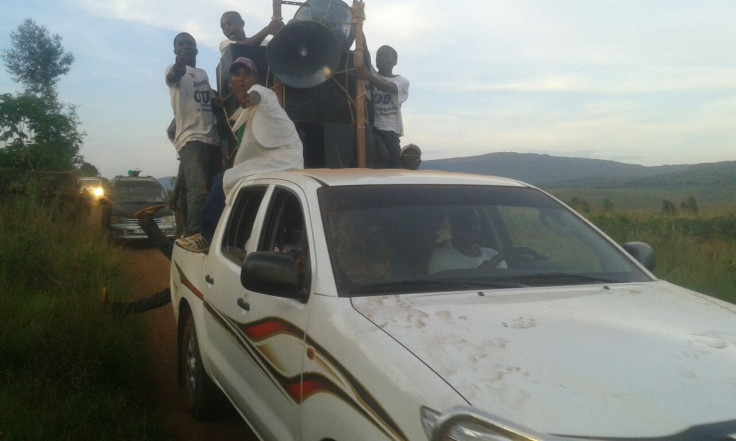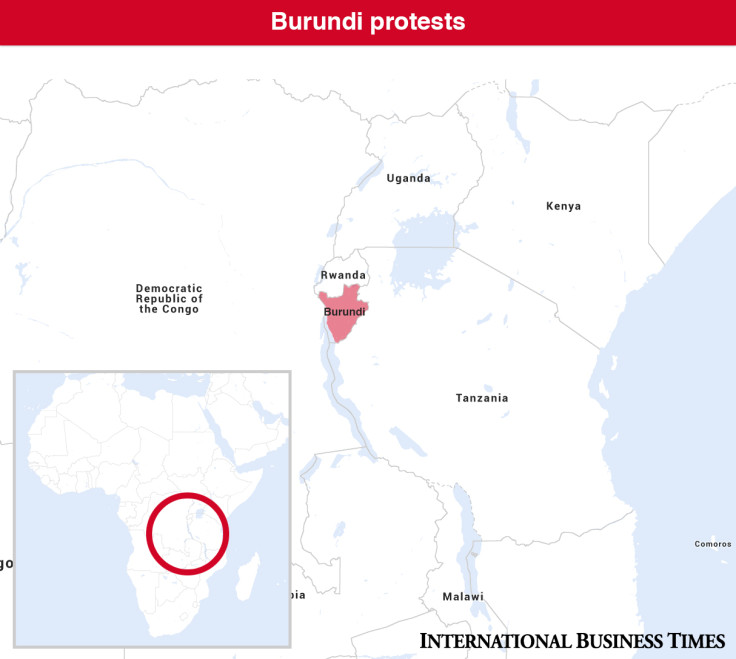Burundi: 'Elections behind closed doors' as opposition leaders withdraw from vote

Leaders of the opposition in Burundi have announced a boycott of the controversial legislative and municipal elections on 5 June and presidential elections on 26 June, following over a month of street violence.
More than 20 people have been killed and 500 wounded since 26 April, when Burundi's ruling party National Council for the Defense of Democracy (CNDD-FDD) nominated President Pierre Nkurunziza to stand for re-election, triggering daily and often violent protests.
Opposition leaders want Nkurunziza to withdraw his third-term bid in the upcoming 26 June elections, claiming it violates the country's constitution and the Arusha Accords, a peace deal that ended an ethnic civil war in 2005.
Nkurunziza's supporters, however, argue that the president's first term should not be counted as he was chosen by the parliament and not by the people in an election as is specified in the agreement.
Candidates, who had so far maintained their participation in the contested elections, had been asking for the polls to be delayed until better electoral conditions are met.
'Elections behind closed doors'
The refusal to participate in the polls comes after a majority of international observers announced their decision to pull out, including the Catholic Church, after the electoral campaign, which started on Sunday 10 May, was tainted by claims of political persecution and intimidations.

On Thursday (28 May), following a decision by Burundi's influential Catholic Church to withdraw its support for the upcoming referendum, members of the opposition and representatives of the civil society said they refused to take part.
"They have understood that the elections are not organised properly, they know that Nkurunziza would go to the elections and give the result he wants: if he wants to win with 90% of the votes, he can just tell the CENI (Burundi's electoral commission). They don't want to be linked to this sort of process," Charles Nditije, a senior opposition leader, told IBTimes UK on Thursday afternoon (28 May).
The Arusha Movement, a group of political parties and civil society representatives behind the anti-third term protests, said it has taken its decision not to participate because security conditions are not met.
"We were ready to run for the elections, we had already handed over our lists for the legislatives and presidential referendums, but the conditions need to be transparent. If the CNDD-FDD is the only group who is able to observe the elections, then cheating will occur all along the line. These are elections behind closed doors."
Political persecution and death threats
It claims the murder of Zedi Feruzi, chairman of the Union for Peace and Development, and his bodyguard on Saturday (23 May) in Bujumbura was set up by the ruling party, the CNDD-FDD.
"The violence and insecurity continue to worsen: protesters are killed in the capital Bujumbura and inside the country, and now the government also assassinates political leaders," said Nditije, leader of an opposition faction of the Uprona party. He added the government has arrested former and retired military officers, who he says, are believed to be linked to a thwarted coup d'etat on 13 May.
"Moreover, the media blackout, resulting from the destruction of all independent media, means we cannot lead an electoral campaign and carry on with our elections if no media can cover potential irregularities and dirty tricks," Nditije said over the phone.

The Arusha Movement said it would not accept the election results, unless, it says, international observers attend and media coverage is restored.
On Saturday (30 May), East African leaders will be meeting in Tanzania to discuss the situation in Burundi. While the president's adviser Willy Nyamitwe told IBTimes UK he would be attending the summit, it is still unsure if Nkurunziza will travel to Dar Es Salaam.
"We hope the leaders will ask Nkrunziza to delay the elections and to accept to sit around a table with us to negotiate the necessary conditions for the elections to be held in a trustworthy manner."
Nditije is calling on the international community to refuse the results, should the government go ahead with the elections.
After Nkurunziza announced his candidacy, the United Kingdom and the United States both came forward and asked him to revoke his decision.
Concerned about the escalation of violence in Burundi, Belgium's international development minister Alexander De Croo announced on 12 May that Belgium would suspend its aid to the country.
Belgium and the Netherlands provide financial support to the Burundian police but only €3m (£2.12m, $3.26m) of the €5m (£3.5m, $5.4m) set aside for the purpose has been paid. De Croo also announced that another €2m (£1.4m, $2.1m) to support the electoral process would be withheld.
The same day, the EU also announced it was withholding €2m (£1.4m, $2.1m) of aid to Burundi.
Although the union has already paid €6m (£4.2m, $6.5m) of the €8m (£5.7m, $8.7m) designated to help fund the elections, it declared it had decided to withhold the balance until Nkurunziza heeded calls for a transparent poll.
© Copyright IBTimes 2025. All rights reserved.






















